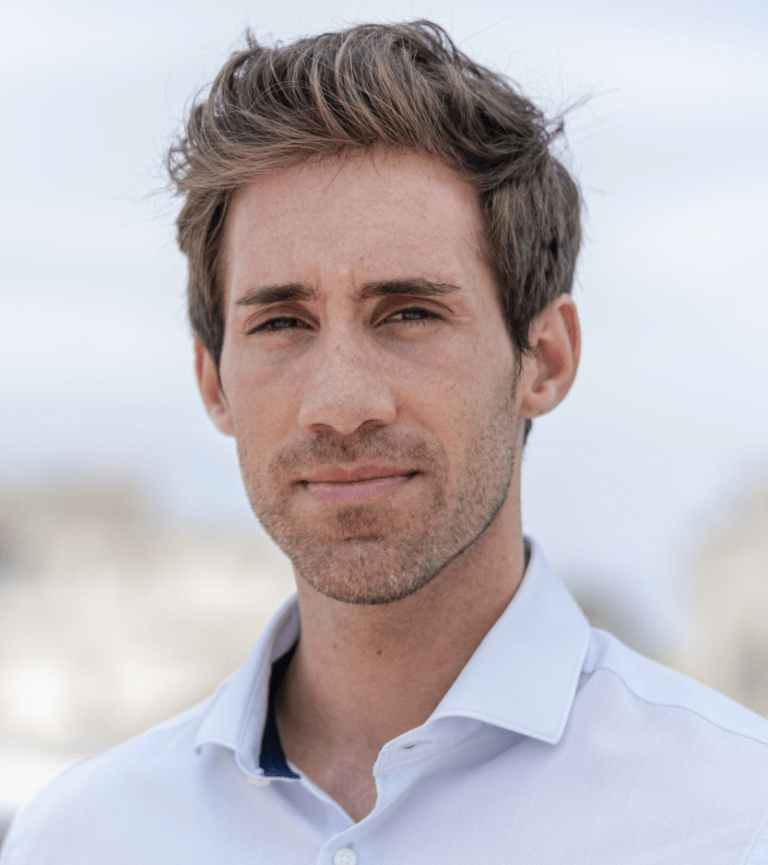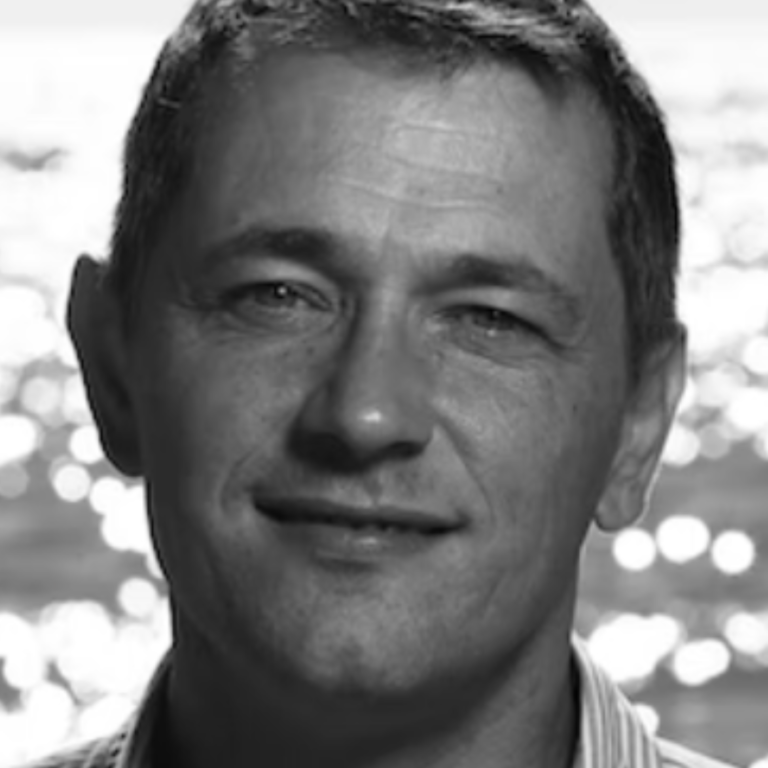Superyacht Shipyards Expectations in Innovations
Open discussion with MB92

Superyacht Shipyards Expectations in Innovations
Open discussion with MB92
What are superyacht shipyards expecting from innovative companies?
With Marc HERVAS, Head of Sustainability at MB92 and Laurent PERIGNON, Yachting Experts.
December 13th, 2022
Open discussion
Why is the superyacht market growing? What are the drivers?
Laurent: There are plenty of reasons. First there’s individual wealth. The number of billionaires is growing. The second reason is COVID. A lot of these clients are very keen on the fact that once they are on their boat, they are protected. They have a safety net. So, they became very interested in owning a boat for that. Another aspect has to do with the development of the charter industry: chartering boats to go places, and enjoy this pleasure. Many people would not buy them but charter them. Part of the cost makes it worth it because you are renting it. In terms of the key drivers for the development, before covid and the awareness on the climate crisis situation, innovation was not so strong on the sustainability side of things. Because of course these yachts burn a lot of oil. But over the past four years there’s been a strong awareness raising for the environment, especially for gasoline and GHG. The challenge now is to really manage to reduce the impact of the yachting industry at all levels. This implies improving the efficiency of operations of the vessel. Improving the type of materials that are used onboard. They can be part of the LCA – in terms of carbon footprint.
A lot of this innovation is also coming from a younger generation coming into the marketplace. They are strong supporters, are pushing all the yards and the R&D in the shipyards.
What is the new generation looking for? Sustainability and connectivity are important, and regarding the life cycle, what solutions are you looking for?
Marc: Currently, we have a really big fleet of yachts, that were built while the idea of sustainability was not as big as it is now. So, we have that full fleet that can be improved a lot in many areas: water treatment, energy efficiency, even in longer term propulsion systems. It has to be done sooner or later. This industry is always under the scope so we have to be proactive on this, and take care of all the stages of the life cycle of the yacht. The good thing about sustainability, even if some owners are not as conscious as other ones, sustainability always brings to the table benefits that are not only related to environment. A lot of sustainability improvements can translate to , economic savings, compliance to regulations, so all these arguments can be explained to clients to try and convince them. Right now, we are offering a package that is only highlighting improvements of performance in sustainability to yachts, and this transfers to a lot of issues. We also have to address waste management – since a yacht is like a house, like a hotel. Many solutions from other industries can be applied to a yacht. It is good that these innovators know that this industry is open to adapt. We need new solutions and we need to improve sustainability performance above all.
Laurent: I agree, and this applies also at the software level, in the management of the yacht this can lead to energy efficiency and better sustainability. All aspects, even to clean the yacht and other operations, as well as the construction. The use of new materials is necessary, anything that is biobased is necessary. Innovation can be quite substantial, and learning from other industries can be useful. This industry has a role to play.
Is regulation influencing the yachting industry?
Laurent: Yes and no. in principle it is influencing the yachting industry, but this industry stands quite separate from shipping. It is less under the pressure of the IMO. These vessels are only used once in a while for leisure craft. The pressure only comes to the yachting industry afterwards. That is one important point, there is a laps in time before the impact of regulation is really strong. Since the IMO is an international body, all these evolutions and requirements take time. Anyone involved in sustainability would tell you that it takes too long to actually have a push on the industry, this is why the industry has to tackle it itself.
Marc: And sometimes it is not enough. Sometimes it feels like regulations are there but only on paper. But this could be used as a decision making tool for innovators to promote their solutions toward users.
Laurent: And one of the goals is also to always be one step ahead, so any company that can manage to think ahead of regulations will be having an advantage.
Does Smart Yacht include both sailing yachts and motor yachts?
Laurent: Yes, sailing yachts and their owners are actually even more prone to adopt sustainable solutions. There is always a question of volume with the yachts, and these questions will be of importance to any yacht owner, it addresses both. Any solution that addresses volume/space/weight/type of materials/… 3D printing is definitely looked into. All of the yachting industry is custom made, so there is a strong point in developing this kind of solutions. It’s recyclable, and allows for more custom made pieces. It would be relevant for sailing yachts especially but also for every type of yachts.
What is the challenge of a head of sustainability?
Marc: There are both internal and external challenges. Internal ones because there is no data or guidelines, there isn’t any benchmarking so any company that wants to work on this industry has to start from scratch. The company has to build their own strategy. It has its pros and cons but it is harder to work only with your own knowledge. This is why it is so important to try to build partnerships and work with partners who can give you an idea of what other industries have done. Not every owner is conscious about sustainability. Sometimes they even have no knowledge of the alternatives. You never see yourself in continuous relationship with providers that have different profiles. There are local old school ones, some big international companies really advanced in technologies. You have to be aware of the fact that you will be talking with many different players with different inputs. Not a single company in the world can do it on their own. You have to adapt yourself.
We also need to educate the ecosystem and showcase what can be done. This is the goal of this initiative we are creating with M3. What does a company offering innovative solution should know before targeting the yachting industry?
Marc: First of all, like we said, there is a need to educate and to convince. I would add that there is a difficulty compared to other industry in running tests. It is not easy to try solutions on existing yachts because there is a fear of “what could go wrong?” But it is also an industry that is open to new technologies. It’s always difficult to do the first step but once you prove yourself it is very rewarding.
What fraction of new yachts are electric and what fraction of old yachts are being electrified right now?
Laurent: It is very limited. Electrification of yachts, when you talk about diesel electric, first, you have to remember that diesel provides the best volume to power to weight ratio to be able to propel a vessel. So when you want to use alternative solutions, whether it is full electric or hydrogen for example, you’re fixing other constraints in the volume of a yacht. This is one of the reasons why there is a reluctance from the owners because you will lose space. So, electrification is really limited on bigger units. You do have new solutions, but it’s overall more for smaller boats. For tenders especially. For the bigger boats, it is more used for what we call the hotel load.
Do you see a need for battery for these bigger yachts as well?
Laurent: For sure! If you find a way to offer a light battery, efficient, that doesn’t take too much weight. And it has to be marine certified. The ones being used in car are not really recommended because there are runaways.
If you have solutions in battery, it is best to introduce your solution and experts like Laurent will give you a feedback. Is there a need for solar panels on a yacht? Is aesthetic important?
Laurent: Aesthetic is very important. Regarding solar panels, some people would say it is greenwashing, others that it is useful. Once again it depends on the usage, and it is always a good contribution to limiting the use of power you need to run through fuel. In the end it will always be a combination of solutions.
Can you speak more about traceability requirements for the yachting industry? (LCA)
Marc: From a shipyard point of view this is the biggest challenge. Because we have so many providers, and every yacht is unique with different materials, different companies… it is not like tracking the manufacturing of a glass. Everything is exclusive and it is very difficult to run carbon footprint assessments of the whole yacht. It is a challenge for all industries but in this one it is one of the biggest. Anyone who can work on that would be a game changer for the future. If the buyers know the carbon footprint of every piece it could influence their decisions. A lot of work has to be done in that specific area.
Where is innovation needed? Technology for builders/operators? Or technology for users?
Marc: As a shipyard we will always have to improve. We are offering a service that has to be top level on quality, insurance, and now with all the sustainability considerations having much more importance, we always have to be conscious about how sustainable are the operations. So, it is always needed for any operation ran in the shipyard, from paintworks to interior repairing. Anything can be important. And we can also help in decision making. If the owners start to be more aware of sustainability and they end up between companies that offer services or product, depending on how smart & sustainable their solutions are, it will have an impact on their decision.
I always compare it to the retail, selling online. For the first years, there was probably not so much benefit for the companies that were selling online. But after a few years, the companies that did not believe that it would become important were in a really big disadvantage. In this industry, it is similar. We might not see the benefits short term, but on the long term, when these things keep gaining and gaining importance, this will be a game changer.
Do you think insurance and dispute management (damage related) are important topics in the yachting industry?
Laurent: For sure insurance and dispute management are always a big issue. It’s something that having proper coverage and there are specific insurance companies in the yachting industry, but in a way deal only with something that has to do with very valuable assets. So anything that can make this easier, especially issues between the owner, the clients, the shipyard, whenever the damage is done – anything that would make this better would certainly be welcome.
Do yachting companies outsource any segments of the manufacturing processes? What are the main challenges in supply chain and procurement in the yachting industry?
Marc: This has been a hot topic for years now. It’s always under the scope of these materials that come in a non-sustainable way. Because of their exclusivity, or their quality, are always demanded on yachts. So yes, supply chain is always a big topic to discuss with sustainability. I think we have been improving a lot in the past years. Teak is a good example. It is going to be gaining more importance in the coming years.
Laurent: One thing about supply chain procurement, when you say there is over 100 providers. In a shipyard, there are many. But depending on their strategy, a lot of the workforce will be in the shipyard, or it will be outsourced as well. So various type of shipyards have different strategies. But every shipyard in the world use many people & providers. And there is always a mix between things that are custom made (where it is really focused on people and their skills), and a part where you need innovation and the latest technology, whether we’re talking about software, or about propulsion, glass, ventilation, air conditioning being a strong element of the use of energy… any improvement. You always have a combination, which is why you have hundreds of people involved, and hundreds of companies. Of course, this can lead to some issues. Like at the moment, you may want to order a yacht. However, you might be able to build a yacht, but you won’t be able to have an engine. Because it depends on materials that are all very expensive. This is a very delicate and complicated industry.
Marc: If you take a look at MB92, we are a project management company. We have less than 200 workers. But in our shipyard, we have more than 1000 people working. All the difference between worker is all outsourcing providers working on different areas of the yacht. It’s a very big topic, there is almost always more than one company working on a specific area. And it is always important for each company to be well positioned on matters like sustainability to gain bigger parts of the market, and having an advantage.
Marc Hervas
Head of Sustainability


Henning Bloech has dedicated his career to moving business towards more sustainable and healthier products and processes. He has run certification programs, led corporate sustainability strategy, and advised organizations on addressing sustainability and environmental challenges.
In 2021, Henning joined Mitsubishi Chemical Advanced Materials (MCAM) as Global Director Sustainable Solutions to execute and drive MCAMs global sustainability and circularity strategy.
Prior to his current role, Henning held various leadership positions in sustainability and environmental performance including leading the SCS Global Services business in Europe as Executive Director, heading strategy and business development of Underwriters Laboratories’ environment business in Europe and Asia as Commercial Director, developing and implementing environmental strategies for INVISTA as Global Sustainability Director, and launching the GREENGUARD Environmental Institute (GEI) as its first employee and Executive Director.
Henning Bloech is a LEED Accredited Professional and an Alliance for Water Stewardship Accredited Specialist. He was a member of the WELL® Materials Advisory, a founding member of the Green Products Roundtable (now Sustainable Purchasing Leadership Council), a member of the TFM Green Buildings Advisory Board, and of the Outdoor Industry Associations Sustainability Working Group. He currently lives in Göttingen, Germany.
Laurent Perignon
Yachting Expert

Henning Bloech has dedicated his career to moving business towards more sustainable and healthier products and processes. He has run certification programs, led corporate sustainability strategy, and advised organizations on addressing sustainability and environmental challenges.
In 2021, Henning joined Mitsubishi Chemical Advanced Materials (MCAM) as Global Director Sustainable Solutions to execute and drive MCAMs global sustainability and circularity strategy.
Prior to his current role, Henning held various leadership positions in sustainability and environmental performance including leading the SCS Global Services business in Europe as Executive Director, heading strategy and business development of Underwriters Laboratories’ environment business in Europe and Asia as Commercial Director, developing and implementing environmental strategies for INVISTA as Global Sustainability Director, and launching the GREENGUARD Environmental Institute (GEI) as its first employee and Executive Director.
Henning Bloech is a LEED Accredited Professional and an Alliance for Water Stewardship Accredited Specialist. He was a member of the WELL® Materials Advisory, a founding member of the Green Products Roundtable (now Sustainable Purchasing Leadership Council), a member of the TFM Green Buildings Advisory Board, and of the Outdoor Industry Associations Sustainability Working Group. He currently lives in Göttingen, Germany.
